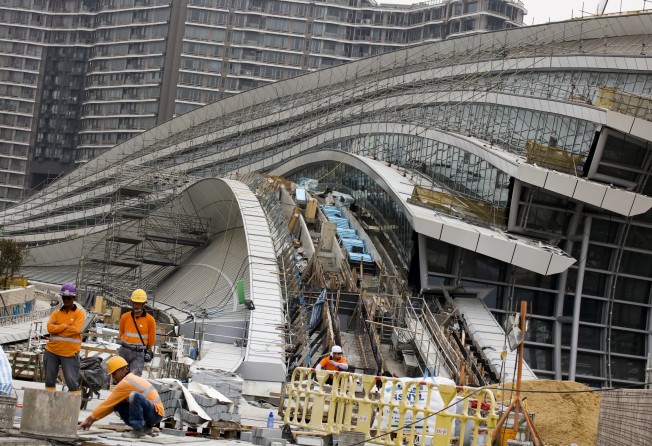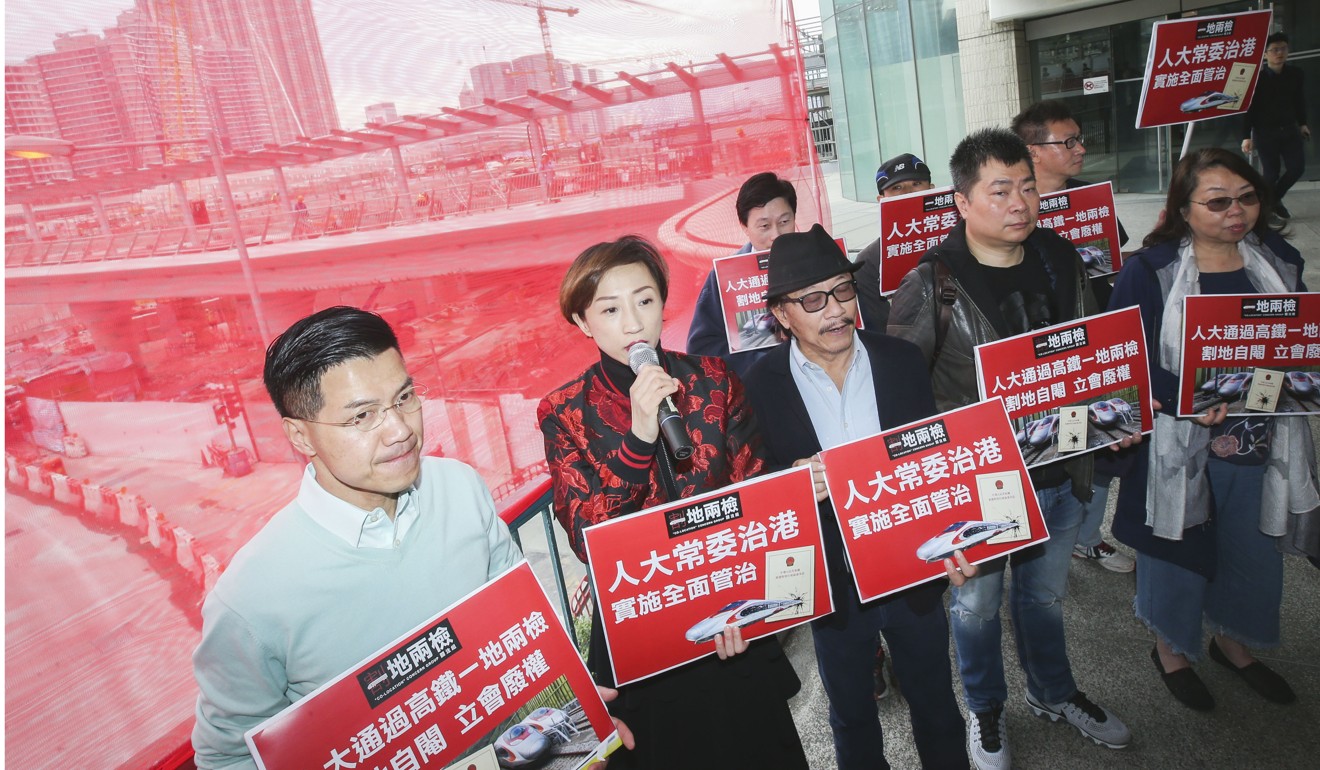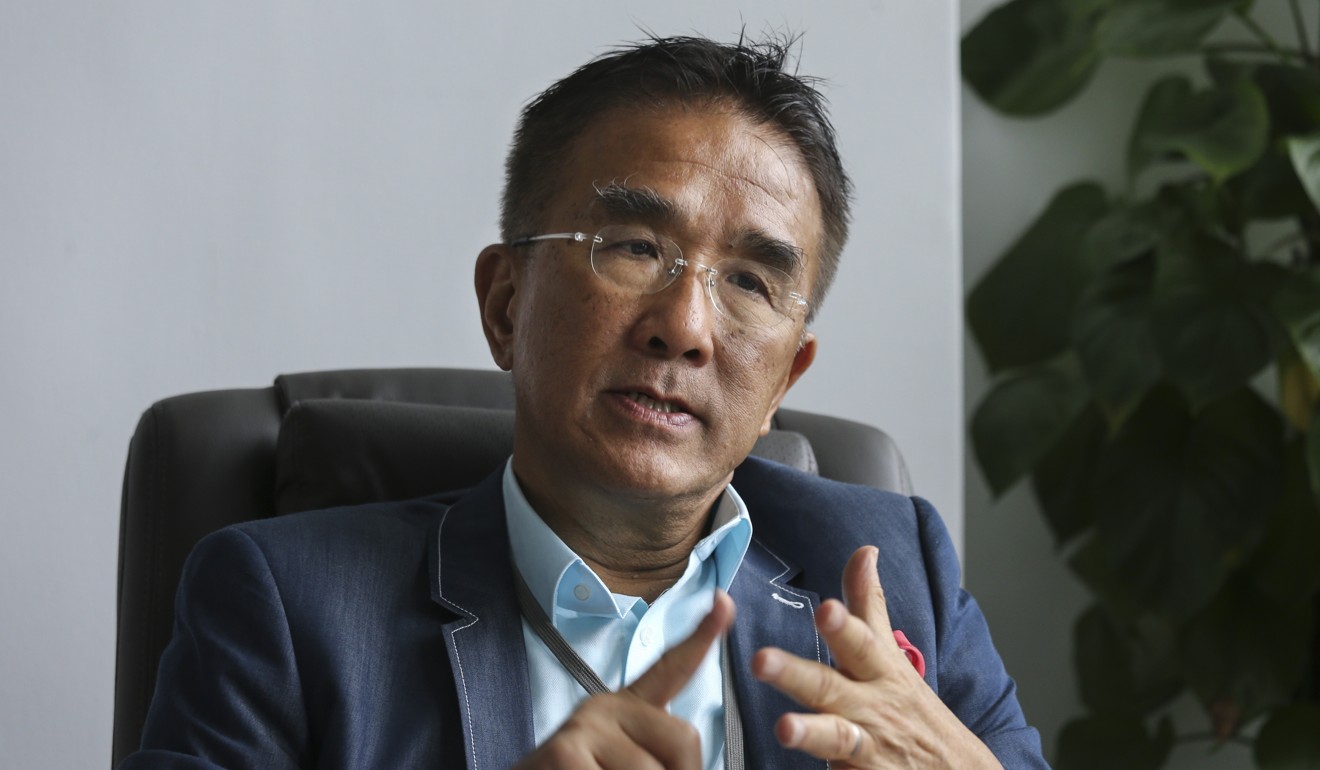Controversial joint checkpoint plan one step closer to reality as Hong Kong government gazettes 34-page bill
Pan-dems say arrangement still lacks firm and clear legal basis for allowing mainland laws to be enforced on local soil

A controversial joint checkpoint plan for a cross-border rail link that would allow mainland Chinese officials to operate on Hong Kong soil became more of a done deal as it was officially gazetted by the city’s government on Friday.
Opposition lawmakers slammed the bill – scheduled for its first reading at the Legislative Council on Wednesday – saying it still lacked a “firm and clear” legal justification as to why mainland laws could be enforced over part of the West Kowloon station of the high-speed rail link to Guangzhou, calling it a violation of the Basic Law, the city’s mini-constitution.
A pro-establishment lawmaker also complained that the bill failed to address Hongkongers’ concerns about their rights in the zone leased to mainland authorities where national laws would be applied.
The local legislation for the Guangzhou-Shenzhen-Hong Kong Express Rail Link (Co-location) Bill will be the third and final step in the administration’s so-called “three-step process”, following an agreement with Guangdong provincial governor Ma Xingrui and endorsement by Beijing’s top legislative body, the National People’s Congress Standing Committee, last month.
The 34-page bill states that a designated area inside the station will be reserved as the mainland port area, which will be regarded as “lying outside Hong Kong but lying within the mainland”. However, it stipulates that the arrangement does not affect the boundary of the administrative division of the Hong Kong special administrative region.
The bill has incorporated three articles of the co-location agreement between Hong Kong and the mainland, including the six circumstances under which the city would exercise jurisdiction in the mainland port area. These circumstances are mainly related to the operation of the rail link, such as the regulation and monitoring of the safety of the railway system.
But University of Hong Kong principal law lecturer Eric Cheung Tat-ming said while the three articles were incorporated in a schedule of the bill, it did not further elaborate on the “reserved and non-reserved” matters in legal terms.
“Even the court’s jurisdiction is unclear in the bill, and these grey areas could be problematic,” Cheung said.

Civic Party lawmaker Tanya Chan, convenor of the Co-location Concern Group, called the bill a “scam” designed to strip Hongkongers of their rights.
“Most of the rights and freedoms of Hongkongers have been taken away, and what is left behind is very limited,” Chan, a barrister by trade, said.
She pointed out there was no sunset clause in the bill stating when the law would cease to be effective.
“How long will the designated area be leased to the mainland?” she asked. “Does it mean that Hong Kong will lose jurisdiction of this area for good and that mainland laws will be enforced in this area forever?”
Chan urged the government to offer a firm and clear legal basis for the proposal to avoid further delay in opening the rail link, which is due to start operating later this year.
Pro-establishment lawmaker Michael Tien Puk-sun, who chairs Legco’s railways subcommittee, also said the bill had failed to address Hongkongers’ concerns as it had not stated clearly what could and could not be done in the mainland port area.

“Hong Kong residents will generally feel that this bill is too simple ... and we will ask their questions one by one as we scrutinise the bill,” Tien said.
However, he also suggested that given local officials’ limited knowledge of mainland laws, it might be impossible for them to answer all queries.
Tien urged the government to arrange a site visit for lawmakers to the terminus and to clarify a number of points in the bill.
The government urged lawmakers to scrutinise the bill in a pragmatic and rational manner.
Additional reporting by Tony Cheung